
Start with a full sheet of 3/4” thick plywood. Have the hardware store cut it two inches wider than the width of your bed. The height of the headboard can be adjusted by cutting the legs to size. Be sure to save any leftover plywood for later use. If you're upholstering a headboard organically, run the shape freehand on large paper. Then trace the paper pattern onto the plywood. If the shape is symmetrical, draw half of the shape on the paper, trace it onto the plywood, and then rotate the pattern on the paper to trace the other half.
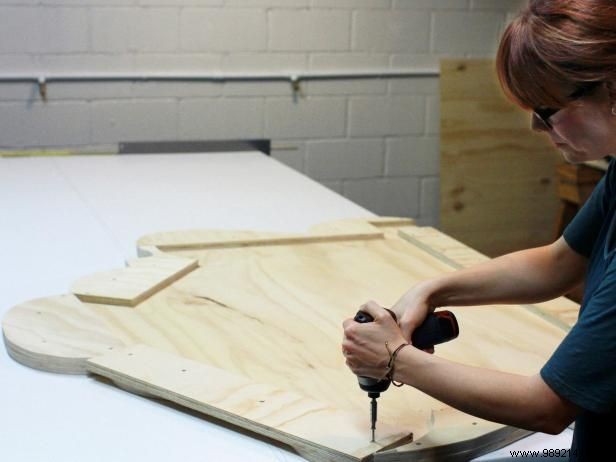
Add the second layer by attaching pieces of plywood to the back of the headboard frame around the edges. (Having the double-thickness headboard frame makes it easy to hide the mounting brackets and leg attachment points.) As you screw the pieces into the shape of the main headboard, it may be necessary to cut them to fit end to end. Leave a 4" square space at the bottom of the sides to attach the legs.

Determine the desired height of the headboard. Assuming your headboard shape is shorter than your desired height, cut two pieces of plywood to build each leg. One piece should be the exact height needed to achieve the desired overall height of the headboard, and the second piece should be the same height plus 4". Both pieces should be 4” wide. Glue and screw the two leg pieces together to bottom edges are flush, then glue and screw the longer end to the bottom of the headboard on the back.

Flip the headboard over and cut the plywood to mimic the shape of the main headboard piece. Remove rough spots and splinters by sanding the edges.

Cole Collective
Determine the thickness of your border and carefully remove that amount from the border of your paper template. Glue several pieces of foam together to create a piece that is large enough to cover the headboard. Use the remaining shape to trace the inside shape of the headboard onto the foam.

Cole Collective
Use a foam cutter or meat cleaver to cut out the shape on the drawn line.
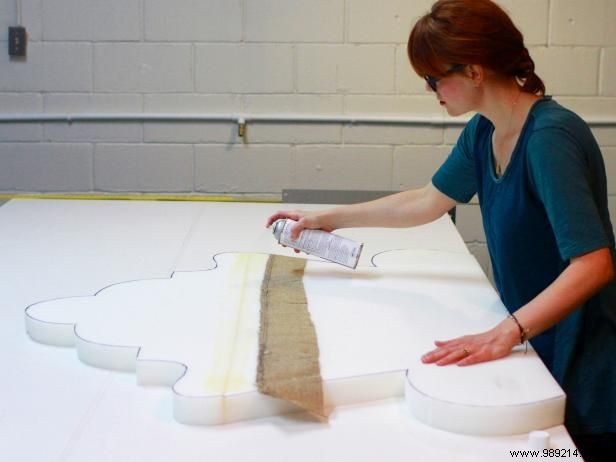
Cole Collective
Glue burlap or scrap fabric over the seams on the front of the foam. This will prevent the separate pieces from disintegrating over time.

Cole Collective
Glue the foam to the headboard and glue a layer of batting on top of the foam. Cut the excess wadding from the edges of the foam..
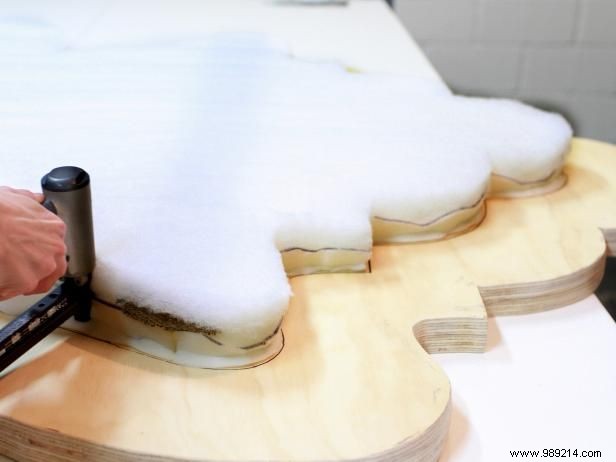
Cole Collective
Staple through the edges of the foam and down into the header to help anchor the padding in place.

Cole Collective
Cut out a piece of fabric large enough to cover the padded part of the headboard. Center the fabric over the main header section, smooth out any wrinkles, and staple in place. Make sure the fabric pattern is centered and straight on the header and use sub staples (see photo) to temporarily affix the fabric to the header. Try to staple the fabric just beyond the padding to minimize air pockets under the fabric. At the bottom of the headboard, wrap the fabric around the bottom edge and hook it to the back of the plywood. When the fabric is in the desired location, permanently staple and remove the sub staples.

Cole Collective
Use the excess paper template to trace the edge of the border onto the fabric with chalk.
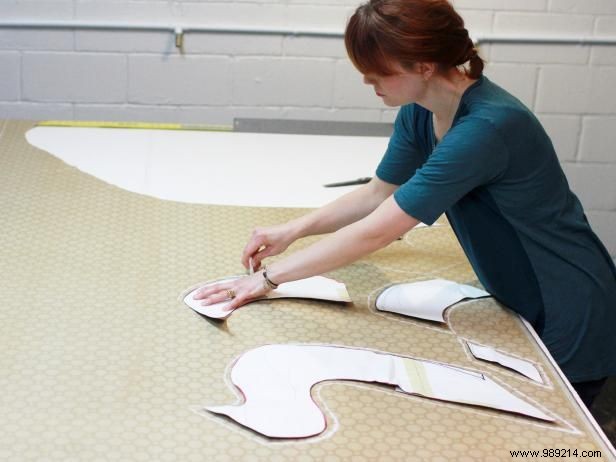
Cole Collective
Trace the edge of the paper template onto the back of the fabric, leaving a 1/2" seam allowance on all sides. If you have a large amount of fabric, feel free to trace the edge as one whole piece, or cut the template into pieces if you are working with limited fabric Draw boxing lengths long enough to go around the perimeter of the headboard plus a few inches for stapling The height of the boxing should be 2" wider than the thickness of the header frame (approximately 3-1/2"). When drawing the fabric pieces, keep in mind the location and direction of the pattern. Cut all the pieces.

Cole Collective
If you plan to use a weld bead, draw long strips on the bias (at a 45 degree angle) that are 1-1/2" wide. We will connect these pieces end to end, but we will need enough overall length to go around perimeter of headboard.Mark bottom ends of all strips and trim.
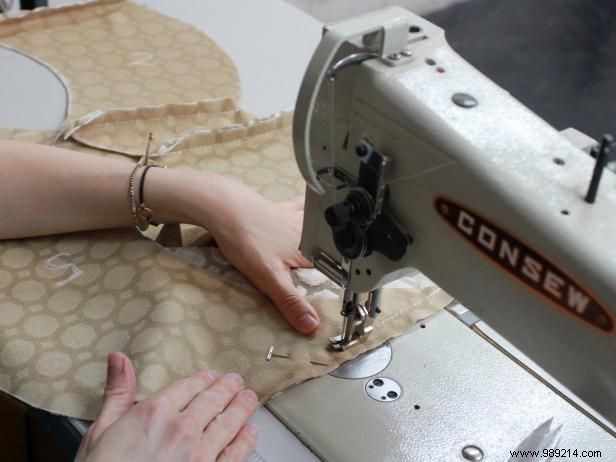
Cole Collective
If you cut the border into several pieces, sew them together with the good sides facing.
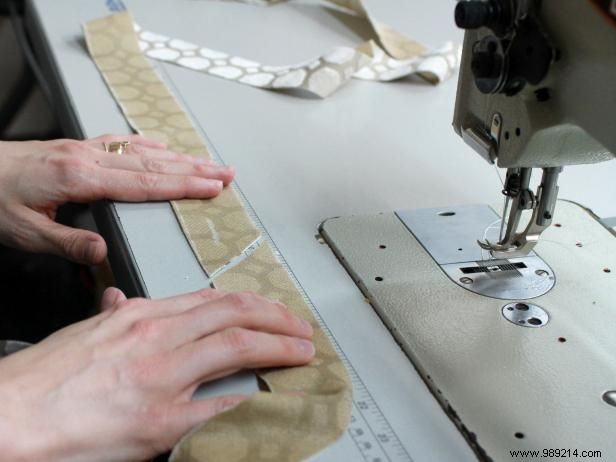
Cole Collective
Align a marked end of the weld bead next to an unmarked end and cut them at complementary angles.
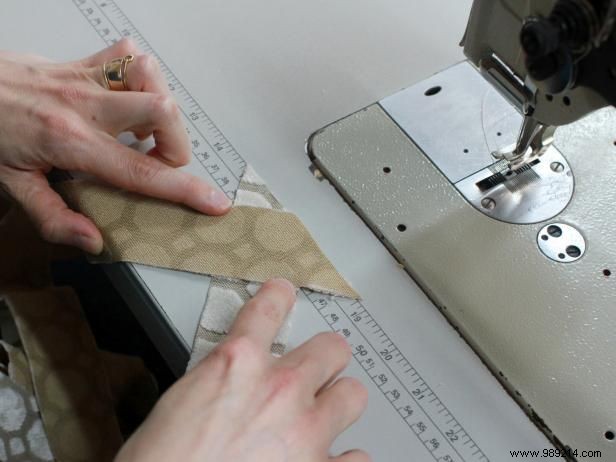
Cole Collective
With the sides facing the right way, lay out two strands of cord in the shape of a teepee. The ends should be slightly offset to allow a 1/2" seam allowance.
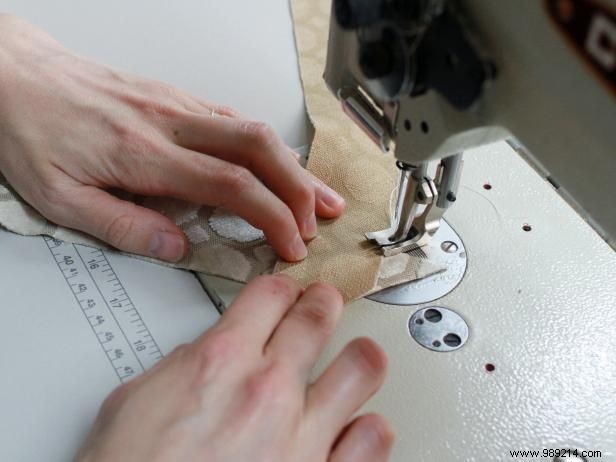
Cole Collective
Sew through the ends of the fabric strips to connect them. Repeat until all fabric strips are attached.
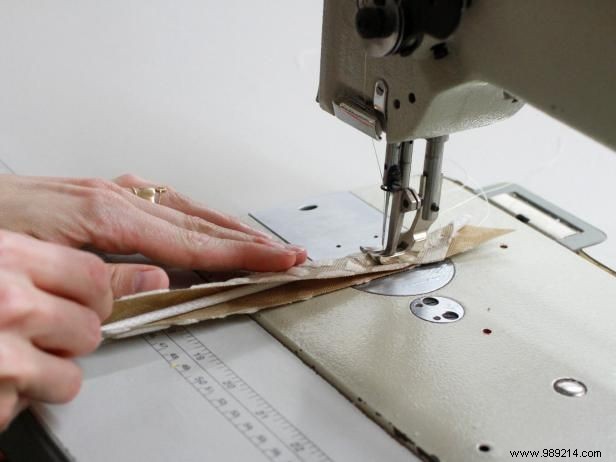
Cole Collective
Wrap the fabric around the string and sew along the right side. If you don't have a single cord foot attachment for your sewing machine, you can use a zipper foot attachment. Open and lay seams flat as you sew connections into the weld bead fabric.

Cole Collective
Keep the tail of the weld bead flush with the outside edge of the trim when sewing the two together.

Cole Collective
With the sides facing the right way, sew the boxing to the outside edge of the brim.
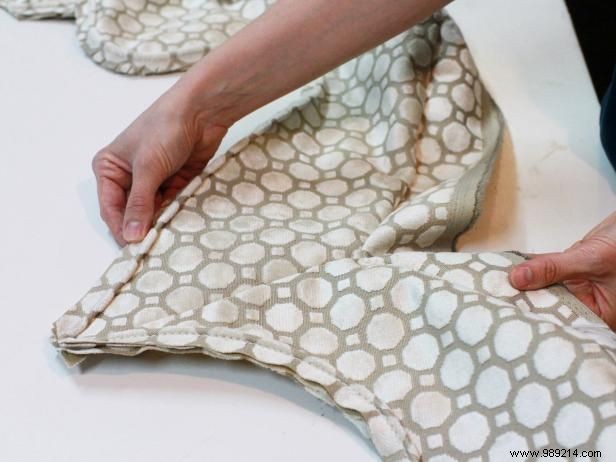
Cole Collective
Once the border and boxing is complete, it's time to staple it to the header.

Determine the correct location of the border along the chalked guide we made earlier.
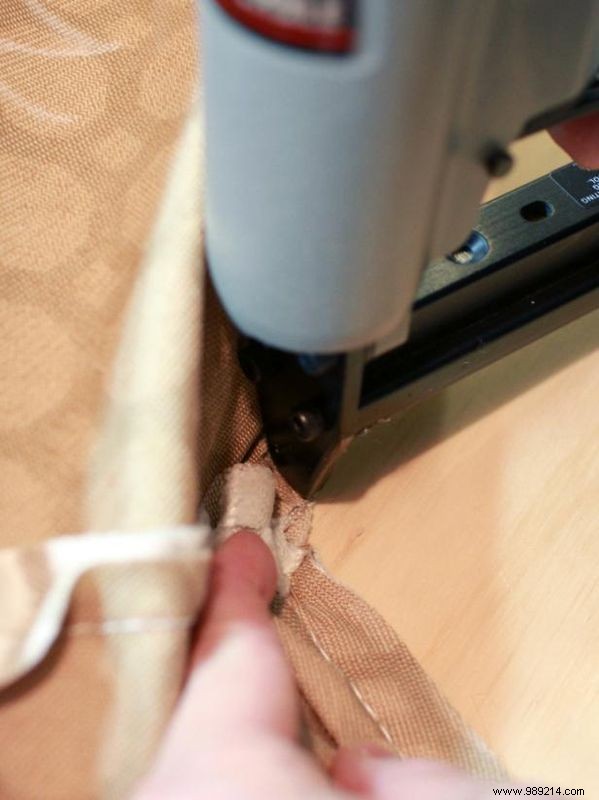
Cole Collective
While holding the border in place, lift the fabric and staple the seam allowance to the header. This is called blind tacking since the staples are hidden from view behind the fabric. Continue stapling to edge all the way around the header.

Cole Collective
Tape the cardboard tack strip over the seam allowance to reinforce the connection to the header.

Cole Collective
Cut and attach Dacron to the edge of the headboard. Divide the Dacron sheet in half and staple just the bottom layer to the wood. The top layer will cover the notches made by the staples. Cut off the excess Dacron even with the trailing edge of the header.

Cole Collective
Pull the brim fabric tight around the edge of the header and staple to the back. If you are having trouble getting the fabric to lay flat around the turns and in the corners, it may be necessary to cut through the excess fabric to release it. Continue stapling until the fabric is secure around the header. Staple the excess fabric down and over the legs where the edge meets the legs.

Cole Collective
Cut a piece of fabric large enough to cover the entire leg and blind the top edge to the top of the leg. Reinforce the staple line with cardboard strips. Repeat for the second stage.

Cole Collective
Pull the fabric down and carefully hook it around the leg. Fold under the excess fabric to create clean edges and staple to the back of the leg. Repeat for the second stage.

Cole Collective
The hammer slides into the lower legs. This helps protect the fabric on the lower legs.

Hide the raw frame at the back of the headboard with a dust cover. Sew two pieces of dust cover together to cover large headers, fold over the excess, and staple around the perimeter of the back.
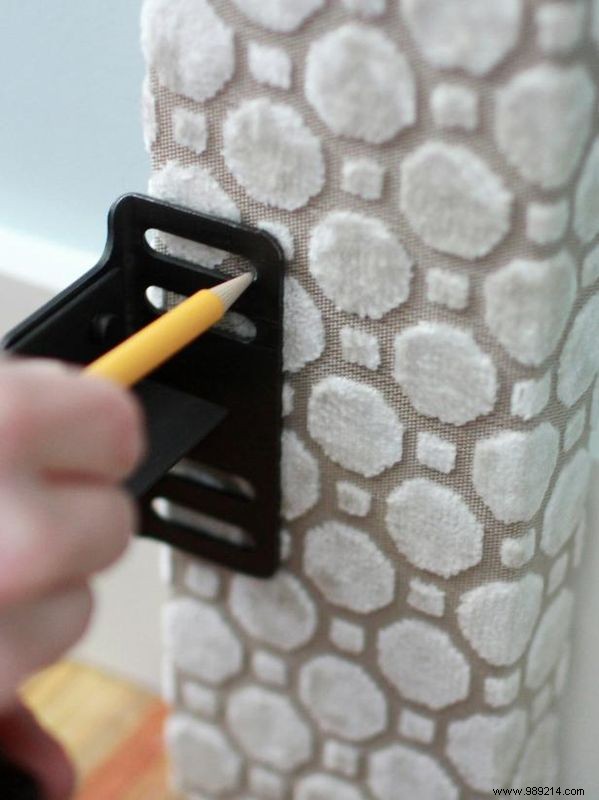
If you are using a standard bed frame, line up the ends with the headboard legs and mark the bolt placement on the headboard legs.
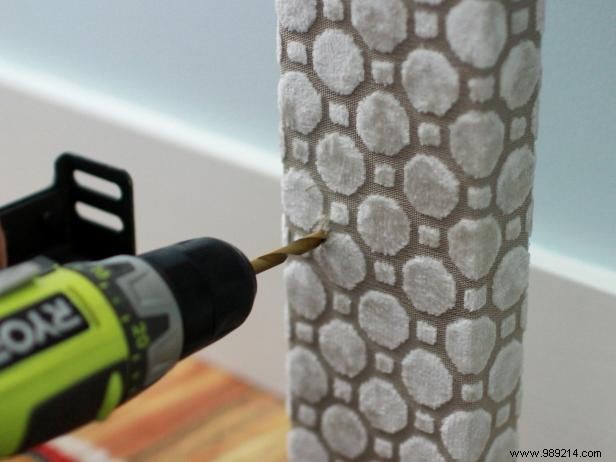
Clean the fabric from the bolt locations and drill holes through the legs the same diameter as the bolts.

From the back to the front, place the bolts through the legs and bed frame and secure with washers and nuts.

Cole Collective
The end product will be a professional looking headboard, customized to fit your style, budget, and space.